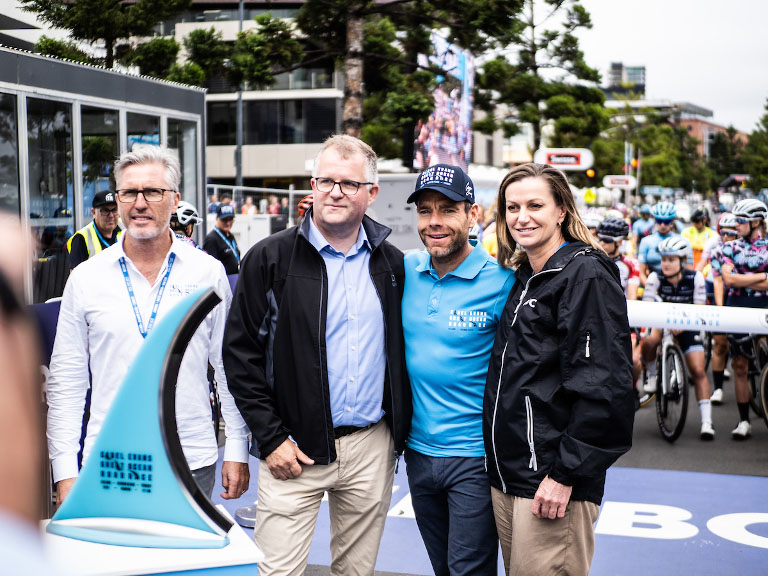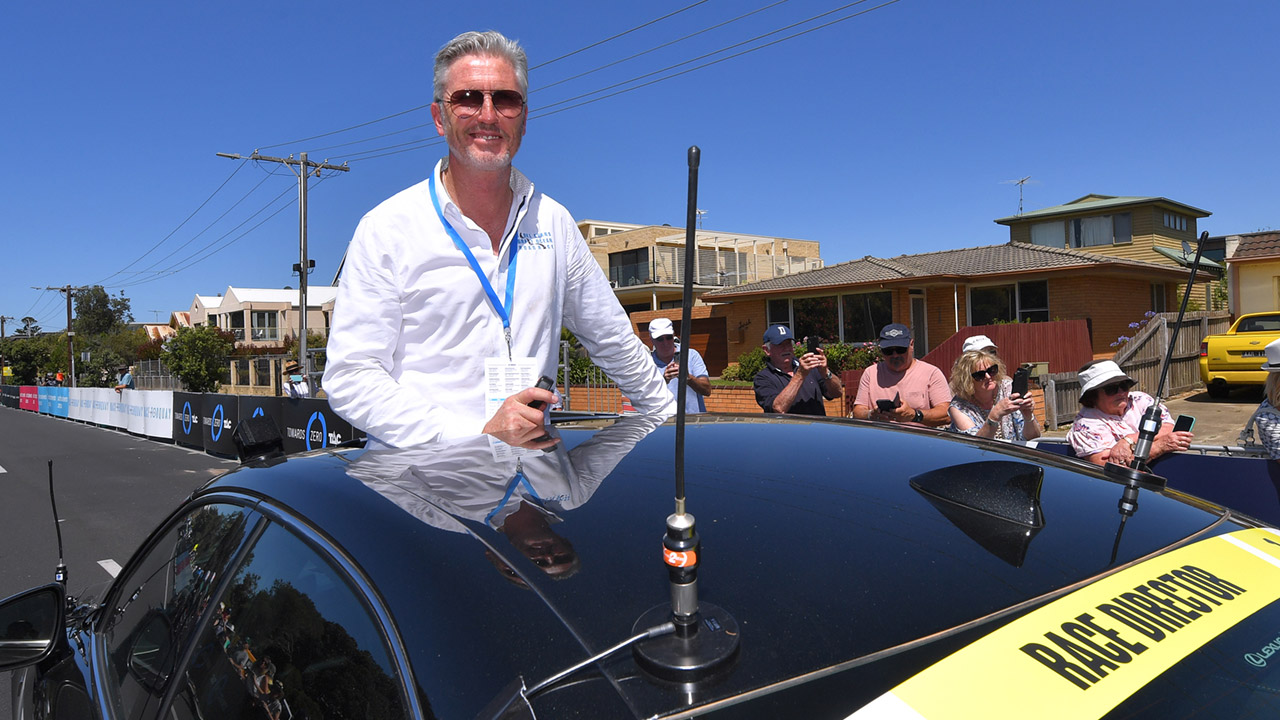Want to know the state of play in domestic and international cycling?
A lot has transpired in cycling – and the world – since the Cadel Evans Great Ocean Road Race in February. Hear from Scott Sunderland, Race Director of our event, the Flanders Classics and RideLondon about the revised UCI WorldTour calendar, virtual racing, the state of women’s cycling and the growth of recreational riding during the pandemic.
What have the past few months been like for you working from home in Belgium?
The UCI, race organisers and teams’ primary concern is keeping everyone healthy and safe, so that we will be ready for business. I’ve been in communication with all of the stakeholders, to help with the UCI’s efforts to get the provisional racing calendar up. We’ve been looking at all of the scenarios for each country. The UCI and organisers will continue to adapt schedules and plans to work with the current and continually changing restrictions concerning COVID-19.
How is cycling – and international sport more broadly – adapting to the COVID-19 world?
All cycling bodies have been very creative and collaborative. When restructuring a calendar to ensure racing has the best possible chance of returning after the lock down, there’s a lot of factors that need to be considered. It’s not just a matter of picking a date for the Tour de France (29 August – 20 September) and taking it from there. There has been a lot of work done by many people across Europe, on what the events could look like post pandemic, and on how the separate federal governments are operating. In general, I think cycling has – and is – doing everything possible, and in the end it’s going to come down to each individual country’s government making the final call on major sporting events.
The history of the Tour of Flanders spans more than 100 years but in 2020, due to the pandemic, a shortened version of De Ronde went virtual. How did you see the ‘lock down edition’ unfold?
It was very successful. Having a virtual version was something the Flanders Classics had been looking at for a while. Once we knew the race wasn’t going ahead on 5 April, the CEO Tomas Van Den Spiegel pushed the button and worked nonstop for two weeks to make it happen. At that time, the lockdown was so new to everybody, the race sparked a lot of interest. The Virtual Tour of Flanders attracted some big name riders, like defending champion Alberto Bettoil (EF Pro Cycling), and the broadcast had a bigger than expected audience with many young viewers whom we hadn’t had watching before. Now, we’ll see if virtual racing will continue to be part of the cycling landscape. I think it will be!

Scott Sunderland, Deakin Vice-Chancellor Professor Iain Martin, Cadel Evans and Tracey Gaudry, Member of the UCI Management Committee and President of the UCI Women’s Commission
The Deakin University Elite Women’s Road Race has been the only UCIWWT race so far this season – what are your hopes for women’s cycling when it’s scheduled to return in August?
Women’s cycling has taken a huge step forward in 2020 and the Deakin University Elite Women’s Road Race was an integral part of that. The UCI was thrilled to have a Women’s WorldTour one-day race in Australia – and what a thrilling start to the season it was! Women’s cycling is still experiencing a steep growth curve, more so than the men, so they should pick up quite quickly after the pandemic and re-start with good momentum – as seen in Victoria, Australia at the beginning of the year.
Research shows more people are riding than ever before – how would you describe the strength of the cycling community right now?
We’re seeing huge numbers of people turn to bike riding all over the world, especially as a means of transport, because of the restrictions. We Ride Australia’s modelling shows 84 per cent of all trips in peak times on public transport will need to shift to meet physical separation guidelines.
Plus, more people are riding for the freedom of exercising outdoors and for their mental wellbeing. We’ve always highlighted that in cycling you can ride on your own, you can ride competitively, you can ride for daily commuting, and you can definitely go on fun rides with family and friends. This is something everybody is again realising.
84km > Race Director @triplesmc takes us through the new section of the course where @TeamINEOS is setting the agenda.#CadelRoadRace #UCIWT pic.twitter.com/mWb0aWh66u
— Cadel Road Race (@CadelRoadRace) February 2, 2020
With the pandemic constantly evolving, it’s difficult to say what the 2021 CEGORR will look like yet, however what are your hopes for the event in the future?
I am very hopeful. As the Race Director, it’s my duty to bring the best teams and athletes to compete in the CEGORR. In the communications I’ve had with those teams, the immediate focus is on the re-starting of the calendar through August, September, October but after that, everybody is very keen to be back in Victoria racing in Geelong, the Bellarine and Surf Coast regions in January. Let’s hope it will present everyone again with a big start of the year, to what will hopefully be a pandemic free 2021.
—
Follow us on social media @cadelroadrace for more insights about staying fit and strong, what the pros are up to in isolation and news from the Cadel Road Race community.
